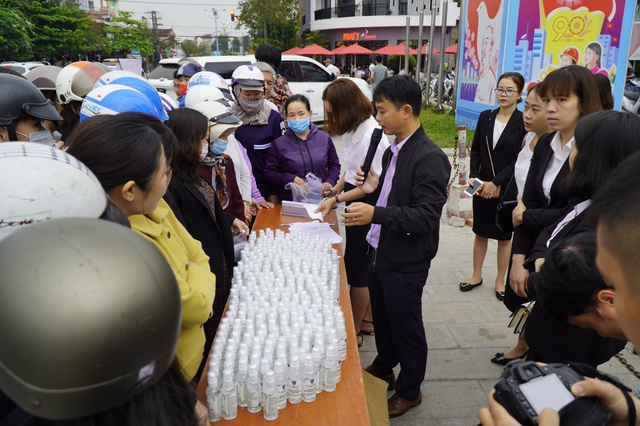VCCI has just sent comments to the Ministry of Finance on the draft revised Law on Value Added Tax (draft). In which, VCCI analyzed: currently, goods and services that are donated domestically for charitable purposes are still subject to tax with the taxable price determined equal to the price of goods and services of the same or equivalent type at the time of this activity.

VCCI recommends that the drafting agency consider the direction that goods and services used for charitable purposes should have a taxable price of 0.
The new draft only considers imported goods to support and sponsor the prevention and control of natural disasters, epidemics, and wars as not subject to tax. In other words, imported goods donated for charitable purposes are not subject to value added tax, while domestically donated goods and services for charitable purposes are still subject to tax.
According to VCCI, the current corporate income tax law considers expenses for supporting local unions, social organizations, charity expenses, etc. as deductible expenses.
In the case of a business donating goods or services for charitable purposes, the business does not generate revenue. If it has to pay value added tax on these goods or services, the business will have to use money from other sources of revenue.
"In the case of an emergency natural disaster like the recent Covid epidemic, many businesses have stopped all normal production and business activities to switch to providing goods and services to fight the epidemic and donate them to the State. If at that time, businesses are still required to pay taxes, it will be very unreasonable," VCCI stated.
For those reasons, VCCI recommends that the drafting agency consider supplementing Article 7.1.c in the direction that the taxable price of goods and services used for charitable purposes is determined to be 0.
Proposing individuals with business income of 200 million VND/year to pay tax
With the content of non-taxable revenue threshold, Article 5.25 of the draft has raised the threshold of non-taxable revenue of households and individual businesses from VND100 million/year to VND150 million/year.
While recognizing that this regulation will help many individuals and small business households avoid having to declare and pay taxes, VCCI also stated that, according to many businesses, the taxable revenue threshold of VND150 million/year is still relatively low.
VCCI makes a comparison between business individuals and salaried individuals to clarify the unreasonableness.
Currently, the family deduction for salaried individuals without dependents is 132 million VND/year; if having one dependent, it is 184.8 million VND/year; if having 2 dependents, it is 237.6 million VND/year.
Assuming that on average, each employee has 1 dependent, the taxable income threshold for salaried employees is currently higher than the value-added tax threshold for business individuals. Not to mention, to have revenue, business individuals will have to incur input costs, while personal income does not have these costs.
According to VCCI, different sectors have different cost structures and tax rates, even though they may have the same revenue. For example, in the commodity trading sector (such as retail stores, grocery stores), input costs account for a large proportion of revenue; the income that individual businesses receive is not large and the tax collected is only from 1.5 million VND/year.
In the service sector, input costs are insignificant, the value added is larger and the tax payable is higher, at least 7.5 million VND/year.
Based on the analysis, VCCI recommends that the drafting agency consider amending the regulations on the taxable revenue threshold of business households and individuals as follows: raising the taxable revenue level to about 180 - 200 million VND per year.
In addition, the classification by industry is similar to Article 12.2.b of the draft on the method of calculating direct tax. For example, the distribution and supply of goods industry has a higher threshold than the service and construction industries, etc.
Source link



































































































Comment (0)